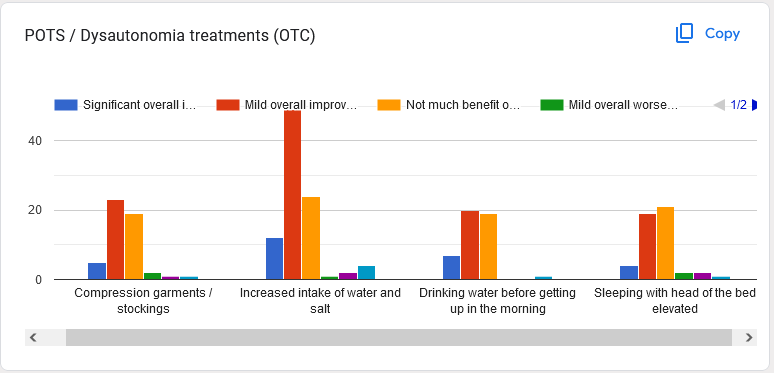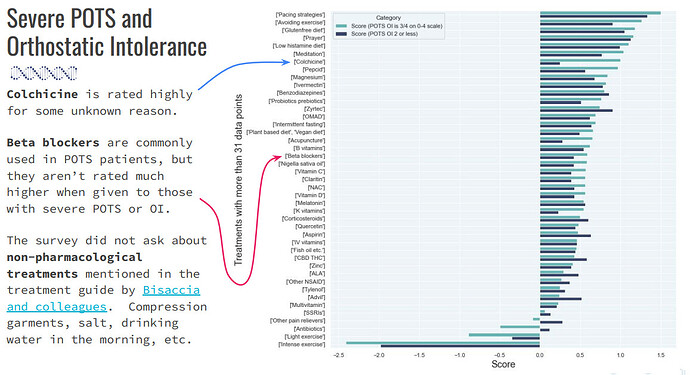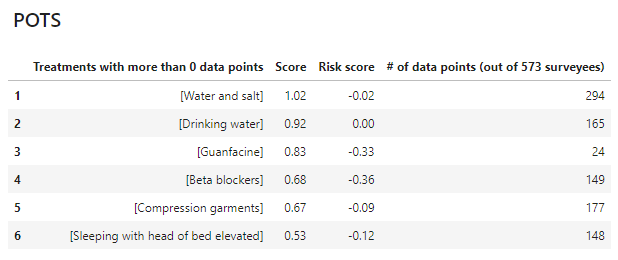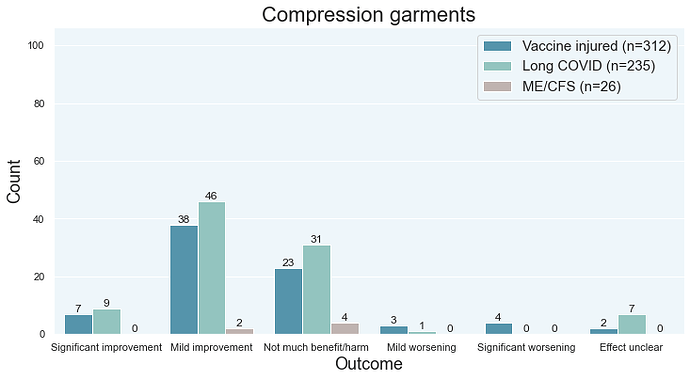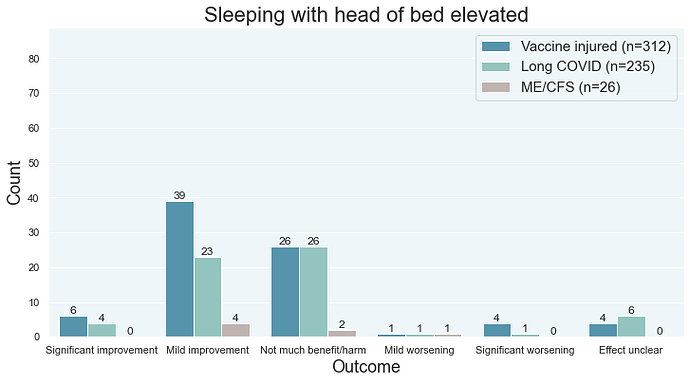Bisaccia and colleagues wrote a guide for treating dysautonomia in Long COVID patients. Out of the safe first-line therapies that they suggested, I gathered survey data on 4 of those treatments.
Those treatments look like safe, very reasonable choices for dealing with POTS.
*The data for increased intake of water and salt may be a little screwy because people without dysautonomia probably answered that question. But other than that, the safety looks good and the response leans towards the favorable side.
- compression garments / stockings
- liberal intake of water and salt
- drinking water before getting up in the morning
- sleeping with the head of the bed elevated
The other safe dysautonomia treatments
- physical reconditioning with aerobic progressive exercise training programs
- careful avoidance of situations that can exacerbate symptoms (sleep deprivation, heat exposure, alcohol intake, or large or heavy meals)
- Physical maneuvers such as leg crossing, muscle tensing, and squatting have been shown to be effective in delaying/preventing vasovagal syncope if used at the onset of prodromal symptoms.
I didn’t put them on the survey because I didn’t figure out how to word them well for a survey. ![]() I’m guessing they’re decent too.
I’m guessing they’re decent too.
Drugs? You like drugs?!
Bisaccia and colleagues also wrote about drugs that don’t work as well as their first-line treatments.
Pharmacological therapies have been frequently used in PASC patients (see Table 3 in their paper). These should be reserved for patients which do not respond to nonpharmacological therapies and are complementary to nonpharmacological measures in patients with severe, refractory symptoms. Recommended drugs have also been extensively used where symptoms persist. These include:
- volume expanders (fludrocortisone, desmopressin, and intravenous saline)
- heart rate inhibitors (propranolol, ivabradine, and pyridostigmine)
- vasoconstrictors (midodrine, octreotide, methylphenidate, and droxidopa)
- sympatholytic drugs (clonidine and methyldopa)
The previous survey has data on certain drugs for very severe “POTS and feeling faint when going from lying down to standing”. See the video or its slides in the video description.
Beta blockers are quite mediocre. Colchicine is rated highly for some reason (though it could be a data artifact).
I hope this helps
Sorry I don’t have some crazy magical treatment for POTS. But… hopefully this data helps. Take care…
